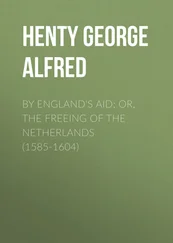Friedrich Schiller - History of the Revolt of the Netherlands – Complete
Здесь есть возможность читать онлайн «Friedrich Schiller - History of the Revolt of the Netherlands – Complete» — ознакомительный отрывок электронной книги совершенно бесплатно, а после прочтения отрывка купить полную версию. В некоторых случаях можно слушать аудио, скачать через торрент в формате fb2 и присутствует краткое содержание. Жанр: История, literature_18, foreign_antique, foreign_prose, на английском языке. Описание произведения, (предисловие) а так же отзывы посетителей доступны на портале библиотеки ЛибКат.
- Название:History of the Revolt of the Netherlands – Complete
- Автор:
- Жанр:
- Год:неизвестен
- ISBN:нет данных
- Рейтинг книги:3 / 5. Голосов: 1
-
Избранное:Добавить в избранное
- Отзывы:
-
Ваша оценка:
- 60
- 1
- 2
- 3
- 4
- 5
History of the Revolt of the Netherlands – Complete: краткое содержание, описание и аннотация
Предлагаем к чтению аннотацию, описание, краткое содержание или предисловие (зависит от того, что написал сам автор книги «History of the Revolt of the Netherlands – Complete»). Если вы не нашли необходимую информацию о книге — напишите в комментариях, мы постараемся отыскать её.
History of the Revolt of the Netherlands – Complete — читать онлайн ознакомительный отрывок
Ниже представлен текст книги, разбитый по страницам. Система сохранения места последней прочитанной страницы, позволяет с удобством читать онлайн бесплатно книгу «History of the Revolt of the Netherlands – Complete», без необходимости каждый раз заново искать на чём Вы остановились. Поставьте закладку, и сможете в любой момент перейти на страницу, на которой закончили чтение.
Интервал:
Закладка:
Although bound to the house of Spain by the ties of relationship, the Emperor Maximilian II. gave it just cause for its charge against him of secretly favoring the rebels. By the offer of his mediation he implicitly acknowledged the partial justice of their complaints, and thereby encouraged them to a resolute perseverance in their demands. Under an emperor sincerely devoted to the interests of the Spanish house, William of Orange could scarcely have drawn so many troops and so much money from Germany. France, without openly and formally breaking the peace, placed a prince of the blood at the head of the Netherlandish rebels; and it was with French gold and French troops that the operations of the latter were chiefly conducted. 2 2 A few French generals who were by and large ineffective, and many promises of gold which were undelivered. – D.W.
Elizabeth of England, too, did but exercise a just retaliation and revenge in protecting the rebels against their legitimate sovereign; and although her meagre and sparing aid availed no farther than to ward off utter ruin from the republic, still even this was infinitely valuable at a moment when nothing but hope could have supported their exhausted courage. With both these powers Philip at the time was at peace, but both betrayed him. Between the weak and the strong honesty often ceases to appear a virtue; the delicate ties which bind equals are seldom observed towards him whom all men fear. Philip had banished truth from political intercourse; he himself had dissolved all morality between kings, and had made artifice the divinity of cabinets. Without once enjoying the advantages of his preponderating greatness, he had, throughout life, to contend with the jealousy which it awakened in others. Europe made him atone for the possible abuses of a power of which in fact he never had the full possession.
If against the disparity between the two combatants, which, at first sight, is so astounding, we weigh all the incidental circumstances which were adverse to Spain, but favorable to the Netherlands, that which is supernatural in this event will disappear, while that which is extraordinary will still remain – and a just standard will be furnished by which to estimate the real merit of these republicans in working out their freedom. It must not, however, be thought that so accurate a calculation of the opposing forces could have preceded the undertaking itself, or that, on entering this unknown sea, they already knew the shore on which they would ultimately be landed. The work did not present itself to the mind of its originator in the exact form which it assumed when completed, any more than the mind of Luther foresaw the eternal separation of creeds when he began to oppose the sale of indulgences. What a difference between the modest procession of those suitors in Brussels, who prayed for a more humane treatment as a favor, and the dreaded majesty of a free state, which treated with kings as equals, and in less than a century disposed of the throne of its former tyrant. The unseen hand of fate gave to the discharged arrow a higher flight, and quite a different direction from that which it first received from the bowstring. In the womb of happy Brabant that liberty had its birth which, torn from its mother in its earliest infancy, was to gladden the so despised Holland. But the enterprise must not be less thought of because its issue differed from the first design. Man works up, smooths, and fashions the rough stone which the times bring to him; the moment and the instant may belong to him, but accident develops the history of the world. If the passions which co-operated actively in bringing about this event were only not unworthy of the great work to which they were unconsciously subservient – if only the powers which aided in its accomplishment were intrinsically noble, if only the single actions out of whose great concatenation it wonderfully arose were beautiful then is the event grand, interesting, and fruitful for us, and we are at liberty to wonder at the bold offspring of chance, or rather offer up our admiration to a higher intelligence.
The history of the world, like the laws of nature, is consistent with itself, and simple as the soul of man. Like conditions produce like phenomena. On the same soil where now the Netherlanders were to resist their Spanish tyrants, their forefathers, the Batavi and Belgee, fifteen centuries before, combated against their Roman oppressors. Like the former, submitting reluctantly to a haughty master, and misgoverned by rapacious satraps, they broke off their chain with like resolution, and tried their fortune in a similar unequal combat. The same pride of conquest, the same national grandeur, marked the Spaniard of the sixteenth century and the Roman of the first; the same valor and discipline distinguished the armies of both, their battle array inspired the same terror. There as here we see stratagem in combat with superior force, and firmness, strengthened by unanimity, wearying out a mighty power weakened by division; then as now private hatred armed a whole nation; a single man, born for his times, revealed to his fellow-slaves the dangerous Secret of their power, and brought their mute grief to a bloody announcement. “Confess, Batavians,” cries Claudius Civilis to his countrymen in the sacred grove, “we are no longer treated, as formerly, by these Romans as allies, but rather as slaves. We are handed over to their prefects and centurions, who, when satiated with our plunder and with our blood, make way for others, who, under different names, renew the same outrages. If even at last Rome deigns to send us a legate, he oppresses us with an ostentatious and costly retinue, and with still more intolerable pride. The levies are again at hand which tear forever children from their parents, brothers from brothers. Now, Batavians, is our time. Never did Rome lie so prostrate as now. Let not their names of legions terrify you. There is nothing in their camps but old men and plunder. Our infantry and horsemen are strong; Germany is allied to us by blood, and Gaul is ready to throw off its yoke. Let Syria serve them, and Asia and the East, who are used to bow before kings; many still live who were born among us before tribute was paid to the Romans. The gods are ever with the brave.” Solemn religious rites hallowed this conspiracy, like the League of the Gueux; like that, it craftily wrapped itself in the veil of submissiveness, in the majesty of a great name. The cohorts of Civilis swear allegiance on the Rhine to Vespasian in Syria, as the League did to Philip II. The same arena furnished the same plan of defence, the same refuge to despair. Both confided their wavering fortunes to a friendly element; in the same distress Civilis preserves his island, as fifteen centuries after him William of Orange did the town of Leyden – through an artificial inundation. The valor of the Batavi disclosed the impotency of the world’s ruler, as the noble courage of their descendants revealed to the whole of Europe the decay of Spanish greatness. The same fecundity of genius in the generals of both times gave to the war a similarly obstinate continuance, and nearly as doubtful an issue; one difference, nevertheless, distinguishes them: the Romans and Batavians fought humanely, for they did not fight for religion.
BOOK I.
EARLIER HISTORY OF THE NETHERLANDS UP TO THE SIXTEENTH CENTURY
Before we consider the immediate history of this great revolution, it will be advisable to go a few steps back into the ancient records of the country, and to trace the origin of that constitution which we find it possessed of at the time of this remarkable change.
The first appearance of this people in the history of the world is the moment of its fall; their conquerors first gave them a political existence. The extensive region which is bounded by Germany on the east, on the south by France, on the north and northwest by the North Sea, and which we comprehend under the general name of the Netherlands, was, at the time when the Romans invaded Gaul, divided amongst three principal nations, all originally of German descent, German institutions, and German spirit. The Rhine formed its boundaries. On the left of the river dwelt the Belgae, on its right the Frisii, and the Batavi on the island which its two arms then formed with the ocean. All these several nations were sooner or later reduced into subjection by the Romans, but the conquerors themselves give us the most glorious testimony to their valor. The Belgae, writes Caesar, were the only people amongst the Gauls who repulsed the invasion of the Teutones and Cimbri. The Batavi, Tacitus tells us, surpassed all the tribes on the Rhine in bravery. This fierce nation paid its tribute in soldiers, and was reserved by its conquerors, like arrow and sword, only for battle. The Romans themselves acknowledged the Batavian horsemen to be their best cavalry. Like the Swiss at this day, they formed for a long time the body-guard of the Roman Emperor; their wild courage terrified the Dacians, as they saw them, in full armor, swimming across the Danube. The Batavi accompanied Agricola in his expedition against Britain, and helped him to conquer that island. The Frieses were, of all, the last subdued, and the first to regain their liberty. The morasses among which they dwelt attracted the conquerors later, and enhanced the price of conquest. The Roman Drusus, who made war in these regions, had a canal cut from the Rhine into the Flevo, the present Zuyder Zee, through which the Roman fleet penetrated into the North Sea, and from thence, entering the mouths of the Ems and the Weser, found an easy passage into the interior of Germany.
Читать дальшеИнтервал:
Закладка:
Похожие книги на «History of the Revolt of the Netherlands – Complete»
Представляем Вашему вниманию похожие книги на «History of the Revolt of the Netherlands – Complete» списком для выбора. Мы отобрали схожую по названию и смыслу литературу в надежде предоставить читателям больше вариантов отыскать новые, интересные, ещё непрочитанные произведения.
Обсуждение, отзывы о книге «History of the Revolt of the Netherlands – Complete» и просто собственные мнения читателей. Оставьте ваши комментарии, напишите, что Вы думаете о произведении, его смысле или главных героях. Укажите что конкретно понравилось, а что нет, и почему Вы так считаете.












